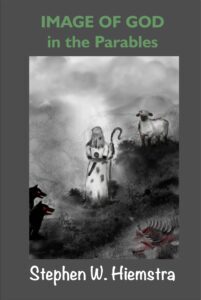Parables in a Postmodern Context

The fear of the LORD is the beginning of knowledge;
fools despise wisdom and instruction.
(Prov 1:7)
By Stephen W. Hiemstra
We know from philosophy that the existence of God can neither be logically proven or disproven, much like the existence of an objective truth. Placher (1989, 34) writes citing Wittgenstein:
When we find the foundations, it turns out they are being held up by the rest of the house. If theologians try to defend their claims by starting with basic, foundational truths that any rational person would have to believe or observations independent of theory and assumptions, they are trying to do something that our best philosophers tell us is impossible.
In plain English, the argument here is that our empirical observations (the grass is green) cannot be separated from our initial definitions (green looks like the color of a tomato leaf). Because enlightenment scholars have failed to find a logistically defensible basis for faith, Christian philosopher Alan Plantinga (2000, xi) proposed the concept of warranted faith. If we engage in a decision for faith when our mental capacities are functioning correctly, then that decision cannot be challenged as philosophically deficient, as argued historically by Marx, Freud, and Nietsche (Plantinga 2000, 136-142).
Evidence of God’s Work in the World
The Bible talks extensively about truth. Jesus describes the Holy Spirit as the Spirit of Truth (John 14:17), and Peter calls the Gospel the Way of Truth (2 Pet 2:2). Furthermore, John testifies as an eyewitness to the truth of the Gospel (1 John 1:1-3). Later, we read:
We are from God. Whoever knows God listens to us; whoever is not from God does not listen to us. By this we know the Spirit of truth and the spirit of error. Beloved, let us love one another, for love is from God, and whoever loves has been born of God and knows God. Anyone who does not love does not know God, because God is love. (1 John 4:6-8)
Here, the Apostle John sees love as evidence of God’s existence and revelation to us.
While the postmodern pre-occupation with love may be unhelpful because of the many false definitions of love given, John does two interesting things in this passage. First, John assumes that the presence of God can be observed in people. This implies that, although proof of God’s existence cannot be logically proved, we still have evidence. Second, this evidence of God’s existence is relational. Love requires an object; it does not stand alone.
The criterion for faith then becomes: Is the Christian story about God more credible than alternative stories about how the world works? Hart (2009, ix) writes: “It may be impossible to provide perfectly irrefutable evidence for one’s conclusions, but it is certainly possible to amass evidence sufficient to confirm them beyond plausible doubt.” The criteria for faith is nothing more than a simplified version of the scientific method.
The Role of the Parables
In the postmodern context in which logical arguments about God’s existence are insufficient, Jesus’ parables present descriptions about how God works in our everyday world. In a first century worldview, the transcendence of God was not disputed, but God’s character and his concern for everyday people was poorly understood. In the postmodern world, this description is reversed. God’s character and concern are at least superficially assumed, but his transcendence is questioned. If his transcendence cannot be demonstrated then our knowledge about his character and concern appears tenuous.
The argument from the parables is that God’s transcendence is inferred from the relational credibility of his character and concern for everyday people. This is an argument from the lesser to the greater, an a fortiori argument. God’s love is like that of a father for his two sons, as in the parable of the Prodigal Son, only greater.(Luke 15:11-32). We know how much parents love their children; the parable relates that love to the love of God for his people. Relationally, this argument is immediately obvious.
In our cynical age, we tire of hearing endless, unresolved stories of children and abusive parents. Stories of joy and healing are good news to our sorry ears. Jesus’ parables are like the water offered to the desert traveler lost , faint-hearted, and close to death.
Parables in a Postmodern Context
Also see:
The Face of God in the Parables
The Who Question
Preface to a Life in Tension
Other ways to engage online:
Author site: http://www.StephenWHiemstra.net
Publisher site: http://www.T2Pneuma.com
Newsletter at: https://bit.ly/DogDays_24 , Signup
The post Parables in a Postmodern Context appeared first on T2Pneuma.net.



